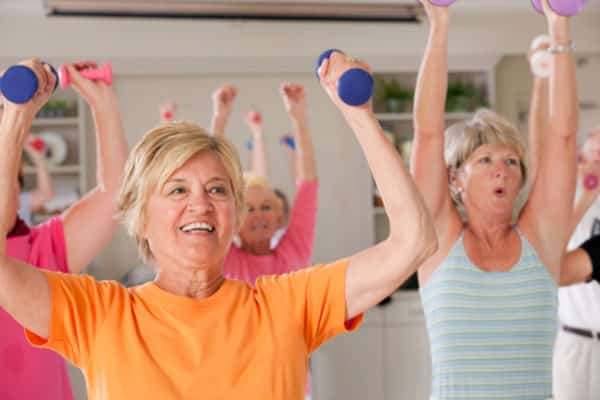
The Antidote to Overeating
Have you ever wished you could erase the extra calories you ate over the weekend or on vacation before they showed up on your hips? According to recent research, maybe you can. It’s not painless, nor is it as easy as taking a pill, but you might be able to erase the effects of overeating according to a recent article in the New York Times (also published in Men’s Fitness).
Researchers in Belgium set up a six-week study to determine if the order of men’s morning routines would make a difference in how they metabolized fat. They used 28 healthy, active men and had them eat 50 percent more fat and 30 percent more calories – some serious overeating for six weeks! Dividing them in three groups, one group did no exercise, one group exercised after breakfast and one exercised before breakfast. Not surprisingly, the group that didn’t exercise gained an average of six pounds over the six week period. The group that exercised after breakfast gained only half as much. Both of these two groups also developed unhealthy conditions that are often precursors of diabetes.
What about the group that exercised before breakfast? They gained almost no weight from all that overeating and showed no signs of insulin resistance. They also burned the extra fat they consumed more efficiently. Now, here’s the rub. They did intense exercise four days a week, running or bicycling for 60 minutes two days and 90 minutes for two days. But remember they were consuming 30% more calories every day and researchers did hypothesize that you could get similar results with less intense workouts (especially if you weren’t overeating every day!)
Would the same be true for women?
Before you run out to exercise before breakfast based on the results of this study, you might want to read about how the timing of exercise affects women. Not surprisingly, women metabolize fat differently than men.
The U.K.’s Daily Mail reports of a study done by Dr. Adam Collins of the University of Surrey. He recruited 30 volunteers, 13 men and 17 women who did not normally do a lot of exercise. For four weeks, they took part in three classes a week; a high intensity training class, Zumba and a spin class. They all consumed a drink before and after each class, but some were drinking a placebo with no calories, while others consumed a calorie-controlled carbohydrate drink.
Dr. Collins discovered that women burned more fat than men, and those who were taking carbohydrates before working out burned up to 22 percent more fat. Men, on the other hand, burned less fat overall, but those who were given carbohydrates after exercising burned 8 percent more fat.
The experiment confirmed the Belgium study findings – that men should eat after exercising to maximize fat-burning. But women need to eat before exercising and we need to wait for at least 90 minutes before eating again.
“Women’s bodies are programmed to burn fat to conserve carbohydrates,” Dr. Collins said. “Most fat-burning occurs in the three hours after they stop exercising. Eating up to an hour and a half after a workout can actually stop a woman’s body burning fat, he said. By eating, you’re forcing the body to use carbohydrates; you could be blunting the whole shift to fat-burning.”
The takeaway from both studies:
- Aerobic exercise (running, cycling, Zumba, HIT classes) can negate the extra calories consumed after overeating. Read Why Zumba? Dancing Your Way Healthy for inspiration.
- The timing of the exercise and eating will greatly affect how much fat you burn. Eat one hour before your workout.
- Don’t eat for at least 1 1/2 hours after your workout. Forget that trainer’s advice of having a protein shake right after your workout or even a green smoothie! Have it an hour before your workout, instead.
So, no magic pill for overeating, but kicking up your exercise program can make a huge difference in your weight!
This article is for informational purposes only. Do not begin any exercise program before consulting with your doctor.
The post The Antidote to Overeating appeared first on Prime Women | An Online Magazine.
